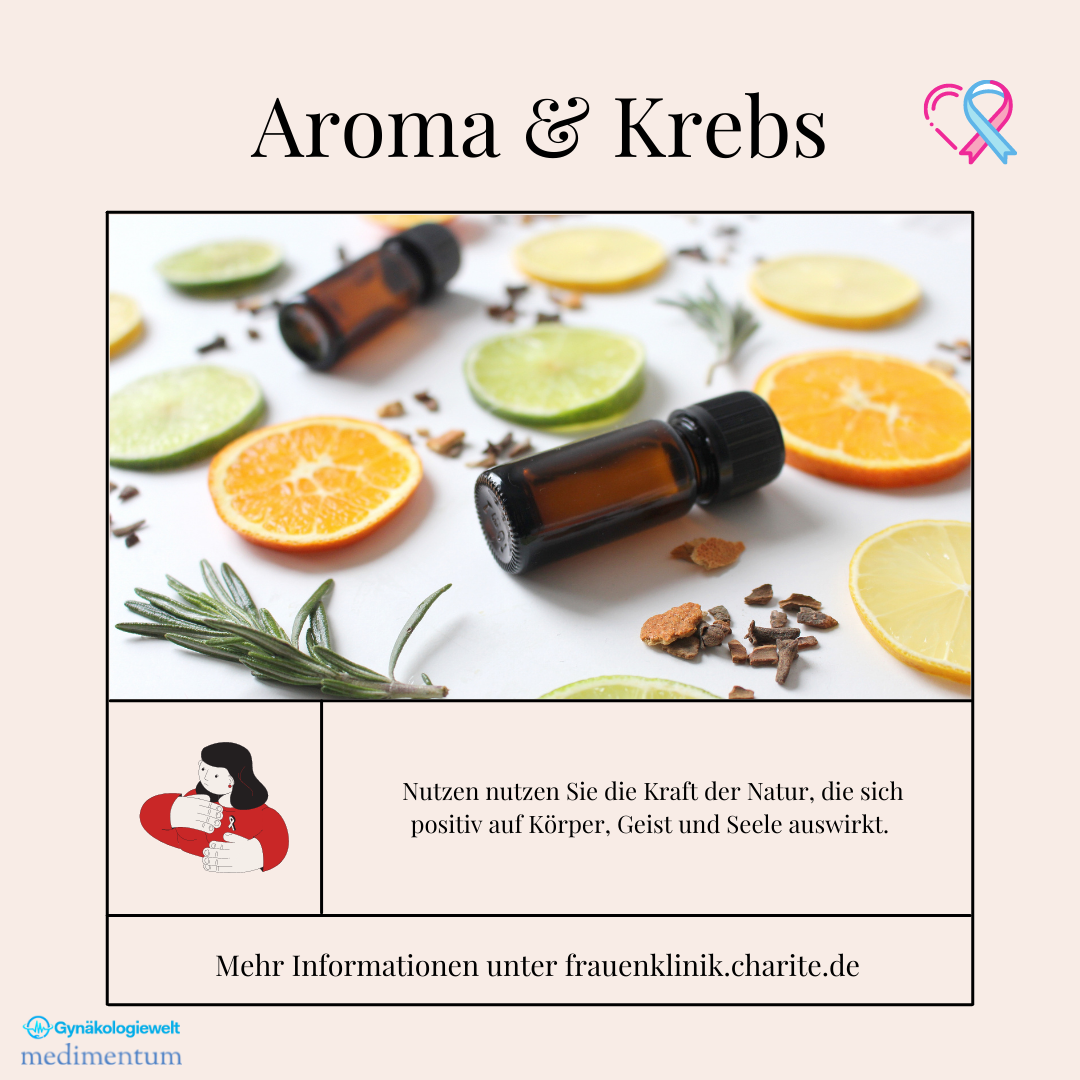The focus of an oncological center is the holistic treatment of people suffering from cancer. In addition to classical medicine, supportive integrative procedures have also been established for this purpose in recent decades. For example, aromatherapy in the hospital. It is already an integral part of integrative treatment in many hospitals in the USA, England and Australia.
Integrative Oncology
Many cancer patients ask themselves what they can do themselves to contribute to a positive course of the disease and treatment. In particular, due to the complex diagnostic and treatment procedures, patients often feel powerless. Complementary medicine procedures can be a valuable support during and after tumor therapy in order to alleviate side effects and late effects of tumor therapy and to improve the quality of life. The term “complementary medicine” encompasses a wide range of disciplines and treatment methods that are based on alternative models of the development of diseases and their treatment than those of conventional medicine. However, they do not replace conventional medicine. Furthermore, they are to be considered as a supplement. Complementary medicine includes naturopathic advice, offers to strengthen self-healing powers, relaxation methods and complementary nursing applications.
It is now widely accepted that the incidence of many tumor entities can be reduced by appropriate nutrition. This is how nutritional advice has become established in almost every oncological medical facility in Germany. Experienced nutrition coaches advise patients and empower them with knowledge. What is new, on the other hand, is the area of complementary treatment with aromas. So-called aromatherapy can have various positive effects on patients who suffer from the side effects of cancer therapy (chemotherapy, radiation, etc.).
Aromatherapy and Cancer
In a hospital atmosphere, where the cancer is treated with strong drugs such as chemotherapy, it is particularly good for the patient to be cared for with insinuating, warming and psyche-enlightening scents. At the same time, the immune system can be stimulated with the right aromas, so that fears, hopelessness, mental stress, helplessness and isolation fade into the background. In connection with a hospital stay, various aromas are now known to be factors that can reduce an immune response in the body. In a psycho-emotional balance, the body can counteract the tumor and support oncological therapy. Essential oils obtained from plants can be used as part of an individual treatment and achieve positive effects.
For example, in the case of nausea and loss of appetite, two common accompanying symptoms of chemotherapy, ginger oil, peppermint oil or fennel oil can be inhaled or applied as a massage. Another option is mouthwash with aloe vera gel and a few drops of Canadian turmeric oil (Hydrastis canadensis) to treat inflammation of the oral mucosa, which can occur as part of chemotherapy due to the damaged gastrointestinal mucosa.
Many doctors would like to integrate aromatherapy or aromatherapy into their treatment concepts. It is therefore important that the patient himself or the nursing staff have a sound education. Essential oils must be safe to use in patient work. At the Charité, including at the women’s clinic on Campus Virchow Klinikum, there are offers of a wide variety of complementary therapies. Studies on the effectiveness and safety of complementary medical procedures and the evaluation of integrative medical approaches are carried out in several institutes and working groups. Research in this area is important because alternative medicine is disadvantaged due to the (still small) number of studies and the lack of scientific evidence.
Nevertheless, the number of open-minded (school) physicians who also recognize and integrate self-collected knowledge and experiences is growing.
Sources:
Klaus Bahlsen Center for Integrative Oncology
https://www.mhh.de/klaus-bahlsen-zentrum
C. E. Elson, D. M. Peffley, P. Hentosh, H. Mo: Proc. Soc. Exp. Biol. Med. 221, 294–311 (1999). D. Bigga: Mit ätherischen Ölen gegen Nachwirkungen der Bestrahlungs- therapie. Forum Essenzia, Heft 18: Kamille (2000).

